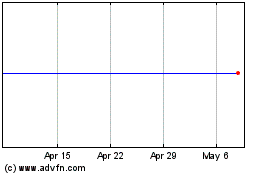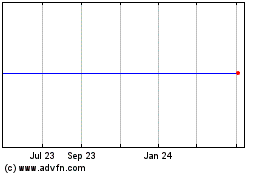Cancer Genetics Announces Compelling Diagnostic Sensitivity (99%) and Accuracy (93%) for Its Patent-Protected Genomic Kidney ...
March 05 2014 - 8:01AM

- 93% Diagnostic Accuracy and 99%
Specificity Support Implementation of the CGI Kidney Cancer
Algorithm and Test in A Clinical Setting
- New Data Presented at USCAP Annual
Meeting; 188 Patient Study Conducted in Conjunction with Cleveland
Clinic
Cancer Genetics, Inc. (Nasdaq:CGIX) ("CGI") announced today the
results of a collaborative study conducted with The Cleveland
Clinic to validate CGI's kidney cancer microarray test. The CGI
kidney cancer microarray facilitates the diagnosis, sub-typing, and
outcome prediction of kidney cancer patients. This study
demonstrated that the diagnostic sensitivity of the test is 93%,
with 99% specificity. The clinical validation study was performed
using samples from 188 kidney cancer patients treated at the
Cleveland Clinic. Accurately diagnosing kidney cancer using
pathology alone is challenging, and can delay time to first
treatment if surgical resections are required.
Cancer Genetics is currently commercializing the test nationally
by making it available as laboratory developed test (LDT). This
study and final data were presented this week by Dr. Magi-Galluzzi
of the Cleveland Clinic at a podium presentation at the 2014 United
States & Canadian Academy of Pathology (USCAP) annual meeting
in San Diego. These results provide additional evidence to support
the clinical value of CGI's, unique, disease-focused, genomic
tests.
This study and data follows the company's recent notice of
allowance for an additional patent in methods for detecting the
subtype of rental cortical neoplasms announced last week.
"This compelling study with Cleveland Clinic, along with initial
work with Memorial Sloan Kettering, provides significant evidence
that our technology has unparalleled value as a breakthrough
diagnostic for kidney cancer," stated Panna Sharma, CEO of Cancer
Genetics. "These new data come at an opportune time, since March is
Kidney Cancer Awareness month, and our test has the ability to both
subtype and help predict outcome from a small amount of DNA taken
from either paraffin-embedded or fine needle aspirate. This is very
unique and will be a tremendous aid for both pathologists and
oncologists helping patients in the battle against kidney
cancer."
The study, "Evaluation of a decision tree in the diagnosis of
renal neoplasms based on genomic aberrations detected by
array-CGH," was completed in conjunction with a translational team
at the Cleveland Clinic that included both Pathology and Laboratory
Medicine and The Urological Institute. The study reviewed 15
targeted genomic regions for copy number data across 188 samples.
The study included samples from all major subtypes of renal cancer.
The samples were initially selected for the study based on
pathologic diagnosis: 62 clear cell carcinomas, 56 papillary
carcinomas, 34 chromophobe carcinomas, and 36 oncocytomas.
Highlights of the analysis include:
- Only 2 micrograms (µg) of DNA material was needed for the
test.
- Overall tumor subtyping ranged from 97% diagnostic accuracy for
clear cell, 93% for chromophobe, 91% of papillary and 86% in
oncocytomas.
- 173 of the 188 samples were correctly assigned to a tumor
subtype.
- Specificity of the molecular diagnosis using the array ranged
from 100% for chromophobe; 99% for oncocytoma and 97% for both
clear cell and papillary kidney cancer subtypes.
- The results support implementation in a clinical setting to
provide highly accurate subtyping and outcome prediction for renal
cancers.
- The panel is also being transferred to a Next-Generation
Sequencing (NGS) platform for additional assessment of genomic
aberrations.
Over 60,000 new cases of kidney cancer are detected each year in
the U.S. and approximately 14,000 deaths occur, making more
accurate diagnosis and earlier time to treatment critical in
managing the disease. It is estimated that 200,000 to 240,000 cases
require assessment annually for kidney cancer. Kidney cancer is
among the 10 most common cancers in both men and women.
The 103rd annual USCAP meeting, taking place this week at the
San Diego Convention Center, San Diego, CA, is the world's largest
pathology meeting.
About Cancer Genetics:
Cancer Genetics, Inc. is an emerging leader in DNA-based cancer
diagnostics, servicing some of the most prestigious medical
institutions in the world. Our tests target cancers that are
difficult to diagnose and predict treatment outcomes. These cancers
include hematological, urogenital and HPV-associated cancers. We
also offer a comprehensive range of non-proprietary
oncology-focused tests and laboratory services that provide
critical genomic information to healthcare professionals, as well
as biopharma and biotech companies. Our state-of-the-art reference
lab is focused entirely on maintaining clinical excellence and is
both CLIA certified and CAP accredited and has licensure from
several states including New York State. We have established strong
research collaborations with major cancer centers such as Memorial
Sloan-Kettering, The Cleveland Clinic, Mayo Clinic and the National
Cancer Institute. For further information, please see
www.cancergenetics.com.
Forward Looking Statements:
This press release contains forward-looking statements within
the meaning of the Private Securities Litigation Reform Act of
1995. All statements pertaining to future financial and/or
operating results, future growth in research, technology, clinical
development and potential opportunities for Cancer Genetics, Inc.
products and services, along with other statements about the future
expectations, beliefs, goals, plans, or prospects expressed by
management constitute forward-looking statements. Any statements
that are not historical fact (including, but not limited to,
statements that contain words such as "will," "believes," "plans,"
"anticipates," "expects," "estimates") should also be considered to
be forward-looking statements. Forward-looking statements involve
risks and uncertainties, including, without limitation, risks
inherent in the development and/or commercialization of potential
products, risks of cancellation of customer contracts or
discontinuance of trials, uncertainty in the results of clinical
trials or regulatory approvals, need and ability to obtain future
capital, maintenance of intellectual property rights and other
risks discussed in the Company's Form 10-Q for the quarter ended
September 30, 2013 and other filings with the Securities and
Exchange Commission. These forward-looking statements speak only as
of the date hereof. Cancer Genetics disclaims any obligation to
update these forward-looking statements.
CONTACT: Investor Relations
Michael Rice
Life Science Advisors LLC
646-597-6979
Media Relations
RedChip Companies, Inc.
Paul Kuntz, 800-733-2447, ext. 105
paul@redchip.com
Cancer Genetics (NASDAQ:CGIX)
Historical Stock Chart
From Jun 2024 to Jul 2024

Cancer Genetics (NASDAQ:CGIX)
Historical Stock Chart
From Jul 2023 to Jul 2024
